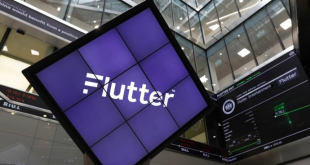Regulus Partners, the strategic consultancy focused on international gambling and related industries, takes a look at some key developments for the gambling industry in its ‘Winning Post’ column.
This week, the GB Gambling Commission and the Competition and Markets Authority (CMA) grasped the thorny issue of account withdrawals, following an investigation into online bingo and casino providers, Jumpman Gaming and Progress Play.
Both companies have given undertakings to the CMA to “remove unfair restrictions placed on customers withdrawing money from their gambling accounts”. The companies are on notice that failure to adhere to the undertakings will lead to action being taken by the Gambling Commission. The Commission also put the rest of the GB-licensed industry on notice that all should be compliant with the new standards. It is important to flag, however, that while these two licensees have been singled out, we would doubt that their behaviour was particularly atypical of the wider sector.
While the CMA’s ongoing investigation into remote gambling centres on principles of consumer fairness, it is likely that the Commission’s interest also extends into protection against gambling-related harm. As Dr Jonathan Parke pointed out last year in his report on risk factors in online gambling, unreasonable impediments to account withdrawal (or attempts to change the customer’s mind) may have serious consequences in terms of harm. The UK thinktank, Respublica also picked up on this theme in a report published earlier this month, suggesting that the practices being uncovered by the CMA could be seen as representing licensing breaches and that they should result in punitive sanctions (rather than simple admonition). The CMA investigation also touched on the controversial practice of charging account dormancy fees – and it may be that this is simply the thin end of the wedge on this issue.
The CMA’s UK-specific ruling highlights three key issues for the wider remote sector, in our view. First, making withdrawals a tortuous process was a standard element of the .com ‘yield management’ playbook; while tolerated by heavier gamblers and surprisingly few operators broke ranks to make instant withdrawal a competitive advantage – notably Sky B&G in late 2017, Barriers to withdraw customer funds is an issue that so obviously plays badly against political/press/public concepts of ‘fairness’ (and arguably probity) that it demonstrates the extent to which common practices can cause regulatory trouble without being properly thought through by operators under increasing scrutiny. Second, while UK regulators might be championing consumer rights in this field, it is not clear that non-UK customers will benefit from similar changes: this could increase a tendency for operators to favour less tight regimes regardless of the soundness of the underlying regulation: the creation of several layers of protection/fairness even within companies could invite a more coordinated regulatory backlash with the added clout of political disapproval, rather than using this opportunity to quietly make broader reforms. The fact that POS regulators have not bothered to tackle this (rather obvious) issue also lends weight to arguments that only active POC regimes can effectively protect consumers and that self-regulation is not really a working answer.
Finally, and this is to an extent conjecture, the customer service provided to ‘heavy users’ in gambling has often been infamously poor across channels, products and geographies (when the customer is that keen on the product, they don’t always have to be coaxed in or back as more fickle consumers might). However, as remote gambling becomes more mass-market, consumer expectations are likely to become much more tough on operators. Indeed, back to the UK, the Gambling Commission’s latest survey of attitudes and behaviours towards gambling (published in February) revealed that the number one reason given by consumers for choice of gambling operators was “reputation of company for being fair and trustworthy” which beat “best odds”, “bonuses” and “recognisable brand name”.” Consequently, operators have an opportunity to make fairness and good service a commercial advantage and a lever of overall market growth in the UK and elsewhere– if they don’t, then more strategically minded and responsible businesses might just start taking share as well as avoiding growing regulatory penalties…
UK: in Parliament – Looking ahead, it all seems so familiar
Over the past month, parliamentary recess has offered a modicum of respite for Britain’s embattled gambling industry. However, all good things must come to an end and the bookie-bashing Bishop of St Albans, the Rt Rev Alan Smith has signalled the resumption of normal service by securing a debate on gambling adverts.
The noble prelate has scheduled a debate (oral PQ) on 12th September to discuss “the increasing prevalence of gambling advertising, as reported in the Gambling Commission’s ‘Review of online gambling”.
Parliament returns on 5th September and will sit for just six days before adjourning again for party conferences on 14th September. However, this period may prove quite busy for gambling given the scheduling of DCMS oral PQs in the Commons on 6th September and HM Treasury orals on 11th September.
Conference season is likely to present further opportunity for policy debate. Having announced his review of gambling and mental health at last year’s Labour Party conference, there is some expectation that Tom Watson (Lab, West Bromwich East) may bring forward new proposals for regulatory tightening. In addition, the Labour for Gambling Reform movement is hosting a fringe event on ‘Lessons from the fight against fixed odds betting terminals’.
It is unlikely that the new Culture Secretary, Jeremy Wright will wish to dwell on gambling as part of his conference speech on ‘Opportunity for future generations’; but it is possible that the think tank Respublica decides to focus on gambling as part of the Tory conference fringe.
All of which is good news for those of us with an aversion to dull moments….
UK: horseracing – raising the bar for stewards
The BHA has made further efforts to protect the integrity of horseracing, and also improve public and betting customers’ perceptions, by creating a new raceday stewarding model. Currently, any enquiries are carried out by two volunteer stewards under guidance from a BHA stipendiary steward – however, by January 2019 racedays will be supervised by a team of BHA employed stewards, with one chief steward to provide guidance.
The increased scrutiny of race results and participants has had the unfortunate consequence of some anomalous results and controversial decisions by stewards – with both their integrity and competency called into question on a fairly regular basis (not always fairly or politely). While historically some elements the sport have often appeared to take betting customers for granted, many of the new steering groups and initiatives created by the sport’s governing body, and resulting changes such as this one, show a real willingness to ensure the sport is fair, transparent and accessible to all participants. This is vital to the future of the horseracing product if it is to compete effectively against the growing number and visibility of competing betting opportunities.
Spain: Q2 online revenue – strong growth from a low base
Spain has reported a 40% increase in GGR to €167m, driven by a 33% increase in actives and a 65% increase in deposits. Unsurprisingly given the part-impact of the World Cup, betting saw the strongest growth, with GGR +47% to €82m; casino continued impressive growth of 37% to €56m; bingo grew 17% to €3.3m; while poker grew 35% to €19m, continuing to benefit from shared liquidity.
Spain’s Q2 results were undoubtedly somewhat flattered by the World Cup (and will be again in Q3), though the momentum across products demonstrates strong underlying trading. With growth in Northern Europe slowing to single digits, Southern Europe is likely to look increasingly attractive. The issue for the wider sector is that Spain’s online market still represents only c. 11% of the UK in terms of revenue.
Portugal: Q2 online revenue – the cracks show through the growth
Portugal’s online market grew by an impressive 47% to €20.5m in Q2, with strong growth in sport (World Cup boost), casino and poker. In terms of overall online spend, Portugal managed a Q2 growth rate that beat Spain’s, but much less consistent growth means that spend per pop. Is now moving in Spain’s favour (€3.66 in Q2 vs. €1.99 for Portugal – an 84% gap). This demonstrates to us that while Portugal’s aggressive fiscal-regulatory regime for betting (8-16% turnover tax, bet type restrictions) might be adequate for a non-price sensitive mass market (perhaps surprisingly so to some), it is certainly not capturing the entire market, especially heavy users. Consequently, a critical mass of customers and the majority of betting revenue remains both untaxed and unprotected, in our view.
US: sports betting – sports leagues back senator’s federal regulatory framework
The MLB, NBA, PGA Tour, NFL and NCAA have all given their public support to a federal framework for the regulation of sports betting proposed this week by Senate Democratic Leader Chuck Schumer. The proposal sets out a series of high-level principles for state legislatures to consider as they develop sports betting legislation, and for Congress to use as a basis for federal legislation if it decides to follow that path. Consequently, it should be seen as relatively light federal coordination rather than an attempt to wrest back overall control from the states.
While there is no mention of “integrity fees” or indeed any (financial) return to sports in the proposals (although the proposed requirement to use official league data, following the NBA / MGM deal and this week’s loosening of casino advertising restrictions on NFL franchises suggests US sports are successfully identifying ways of generating revenue streams from the gambling), they have still led to a strong adverse reaction from the AGA, which described new federal mandates as a “non-starter”.
Putting to one side the debate over federal vs state legislation (in which the sports leagues on the one hand and the gambling industry on the other appear to be entrenched in their opposing views), the content of the framework identifies three principles which either side should find it hard to disagree with. Those are to protect: 1) young people and those suffering from addiction; 2) the integrity of the game; and 3) consumers and individuals placing bets. Some of the further proposals (in principle) also sit in the “no-brainer” category, such as requirements relating to responsible advertising, responsible gambling, information sharing for integrity purposes, rules prohibiting sports’ participants from betting, and general consumer protection measures and safeguards against financial crimes.
However, there are also more contentious suggestions including a prohibition on under 21s betting and a requirement that operators agree with sports leagues which types of bets they are able to offer (which may be a dangerous invitation to stymie product). There is a statement in the document that states steps should be taken to further remove the competitive advantage for illegitimate online sportsbooks – but provisions which encourage states to limit bet types are likely to have the opposite effect if not properly understood or taken too far…









